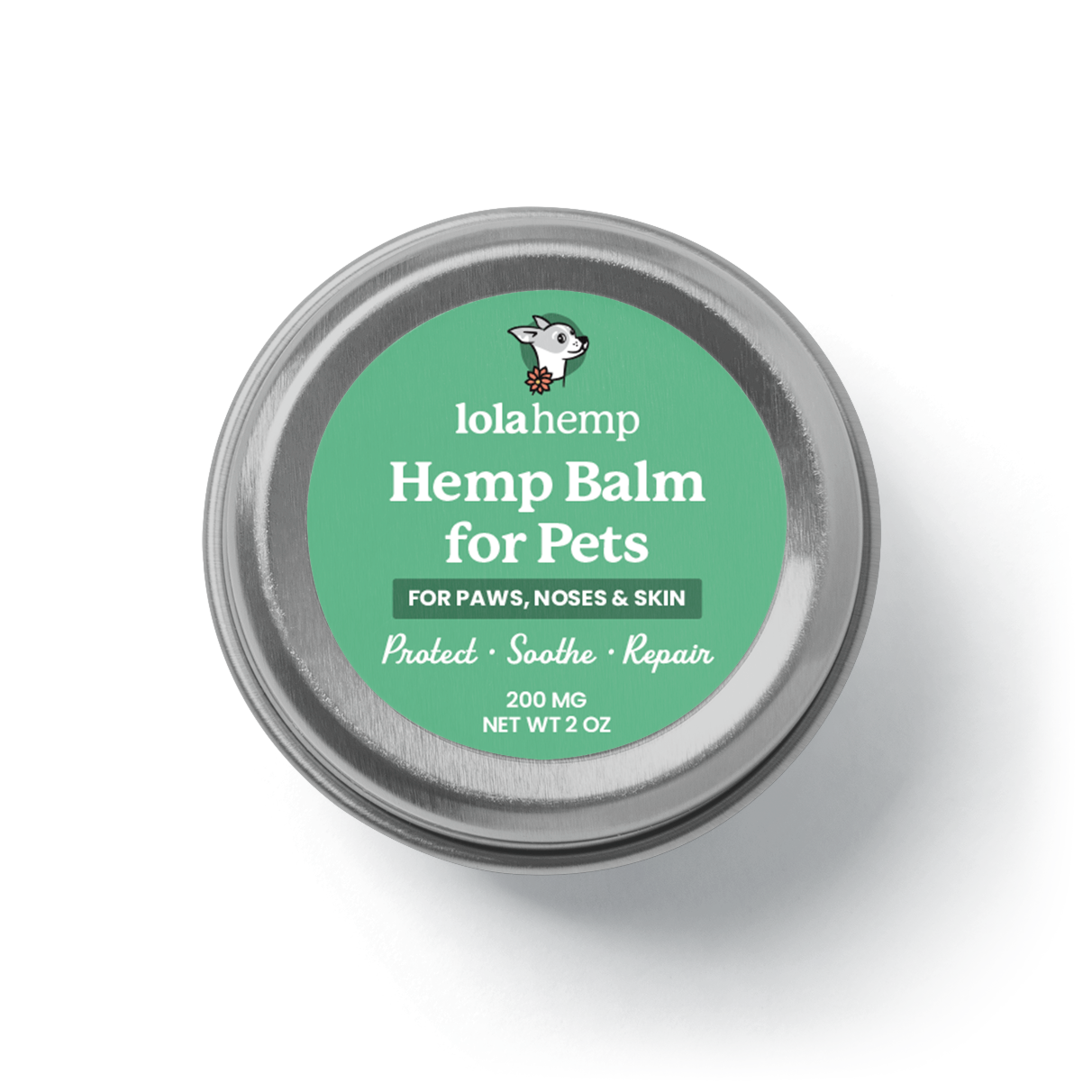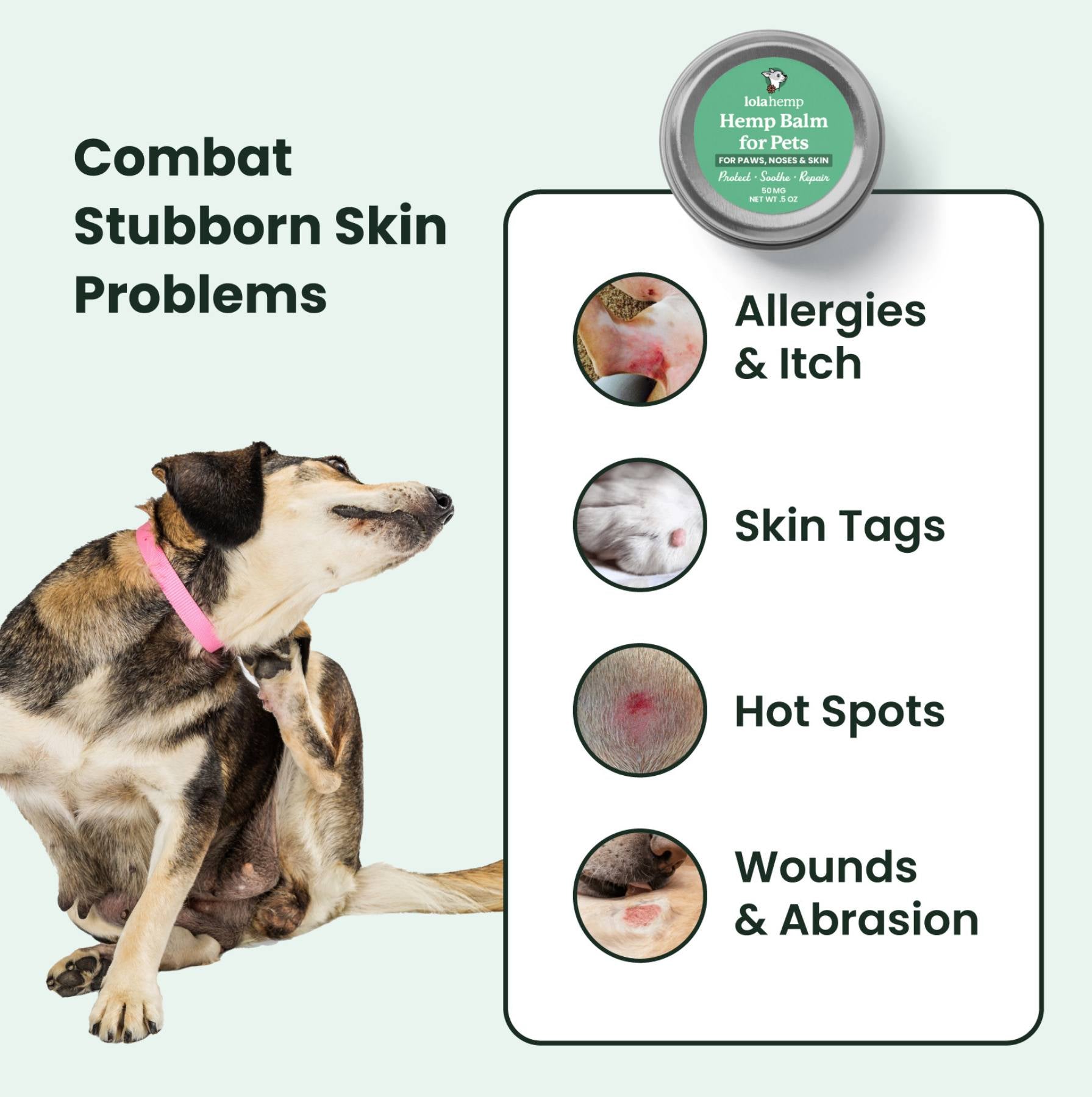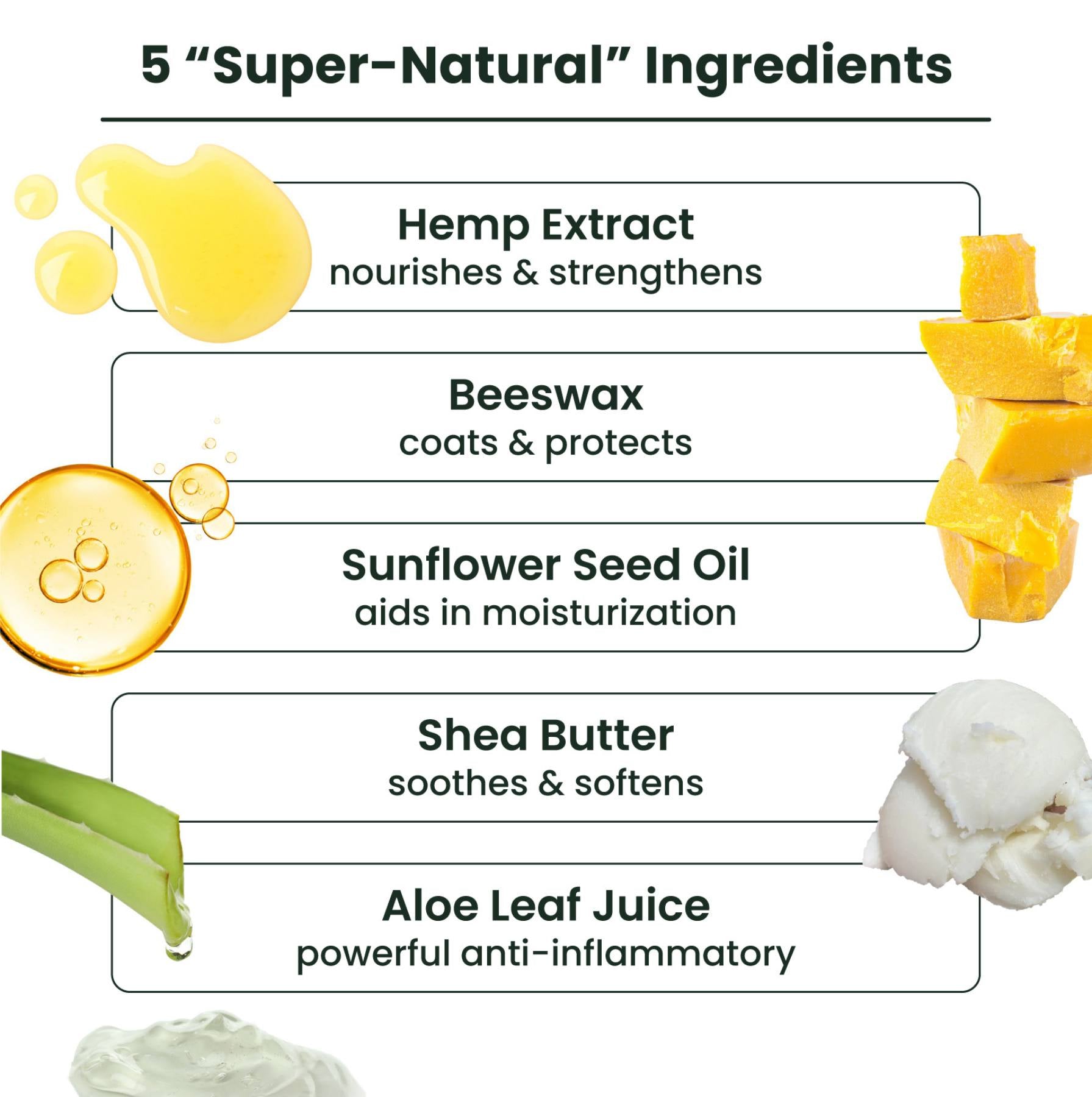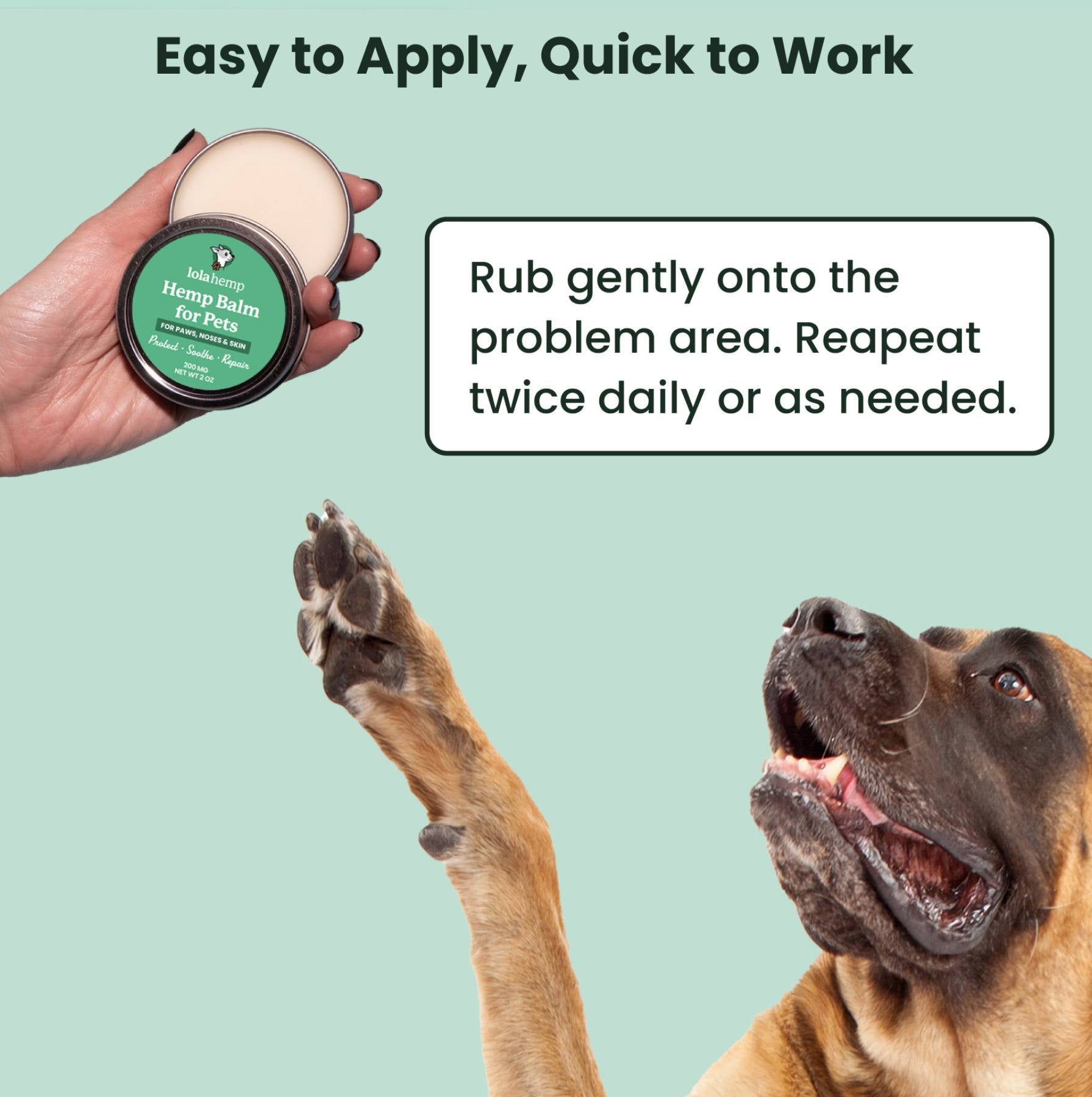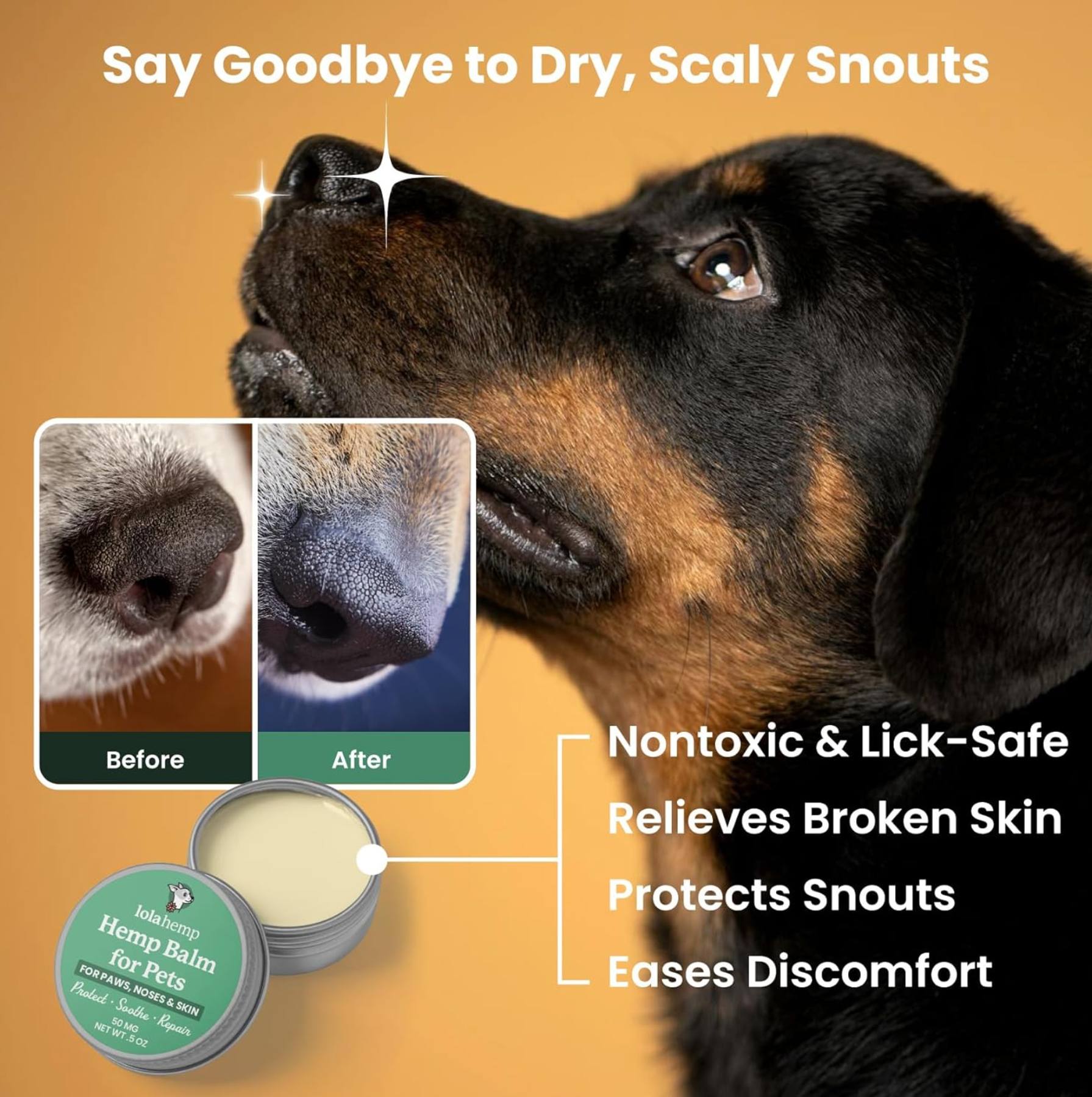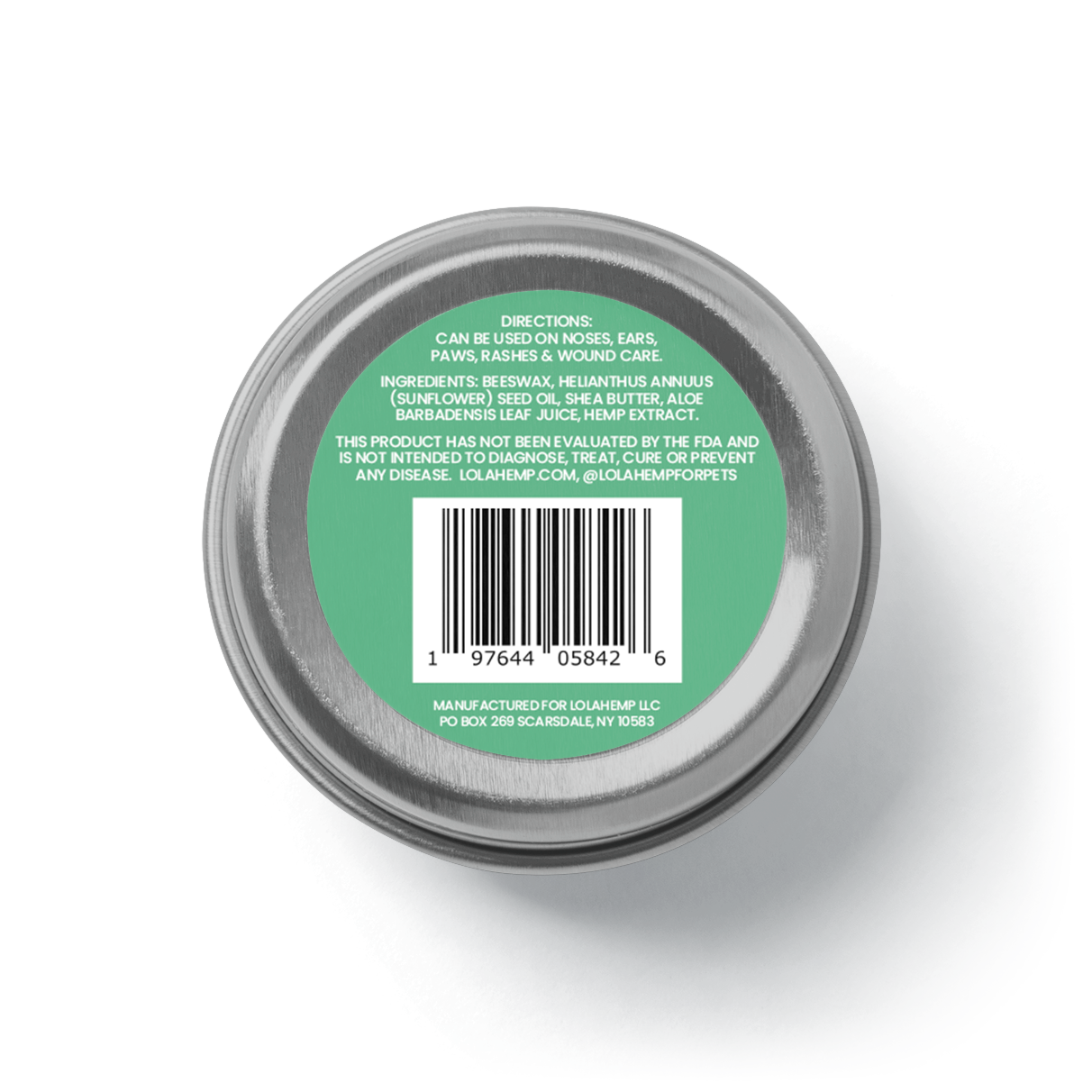Skin conditions in dogs can be difficult to diagnose and treat. This article will explore several common causes of skin problems in dogs, traditional veterinary treatments, and some natural remedies to help soothe skin and promote healing.
Note that skin conditions are commonly caused by allergies which can produce a variety of symptoms listed below. Addressing your dog's allergies and immune health is a huge step toward providing them with an overall boost to health and wellness.
Common Skin Conditions in Dogs
While skin conditions in dogs can come and go, they can also be signs of serious underlying problems that need medical attention. For example, autoimmune diseases, some tick-borne illnesses, external parasites such as mange, and bacterial skin infections.
Other causes of dry and itchy skin in dogs can include:
- Underlying autoimmune disorders
- Seasonal allergies to pollen or mold
- Contact allergies from chemicals in your home
- Allergies from flea or tick bites
- Food allergies or sensitivities
- Hot spots
- Poor nutrition
- Bathing too frequently
- Harsh soaps and cleansers
It is important to first identify the cause with the help of your vet. If you don’t identify the cause, then you can’t prevent the problem in the first place. Without a proper diagnosis, you can’t properly treat the root cause of the condition, which can be life-threatening in some cases.
Let’s take a closer look at some of the most common skin problems for dogs:

1. Contact Allergies
A contact allergy occurs when your dog’s skin comes in contact with a substance that provokes an immune response. This is most common in dogs with immune disorders. An allergic reaction is the body’s way of perceiving the offending substance as a threat to the body and trying to attack it.
Dogs can be allergic to a wide range of things, including:
- Chemicals (fragrances or cleaning products)
- Flea and tick control ingredients such as pyrethrins
- Pollen from specific plants or grasses
- Flea and tick bites
- Mold and dander
- Materials found in fabrics (such as carpets and bedding)
Symptoms of contact allergies in dogs can include:
- Itchiness, redness, or swollen areas at the site of contact
- Excessive licking, itching, and biting
- Hair loss
- Bumps or scabs on the skin
- Runny eyes or nose
2. Food Allergies
Like humans, dogs can also have allergic reactions to specific ingredients in food. Common food allergies in dogs include:
- Specific proteins such as chicken, beef, or lamb
- Grains or specific proteins found in those grains
- Specific ingredients commonly found in dog food such as eggs, wheat, or dairy
Typically, your veterinarian will recommend allergy tests to confirm either food or contact allergies. In addition, if a food allergy is suspected but the allergen cannot be identified, an elimination diet may be the only way to discover the allergen.
While not all of the symptoms of food allergies are skin-related, many pet owners are surprised to learn that indeed many skin-related issues are the result of a food allergy rather than a contact allergy.
Food allergy symptoms may include:
- Persistently dry and itchy skin
- Recurring ear infections
- Bacterial skin infection
- Lack of luster in coat and loss of hair
- Vomiting and diarrhea
- Gastrointestinal upset
- Changes in appetite and energy

3. Hot Spots
Hot spots are a condition that all too many dog owners are familiar with. This condition, also known as moist dermatitis, usually starts as a small inflamed spot that is very irritated causing your dog to lick and scratch it with a vengeance.
The licking makes conditions ripe for bacteria to take hold. If left untreated, these small spots can rapidly grow and even cause a full-scale bacterial skin infection.
Hot spots tend to occur most often in dogs with medium and long hair and during warm and humid weather. Keeping the area clean and dry is key to prompt home treatment. A vet should be consulted if hotspots do not improve within 48 hours.
4. Bacterial and Fungal Skin Infections
Bacteria and fungus are a normal part of every environment and live on the skin of healthy dogs (and people) all the time. However, when the skin is compromised or health is poor, these bacteria and/or fungus can start to rapidly multiply and cause fungal infections in the skin and hair and even lead to more life-threatening complications such as liver and kidney failure.
Rapid veterinary diagnosis and treatment are critical to proper treatment. Symptoms of a bacterial or fungal skin infection may include:
- Yeasty or foul smell on your dog
- Patches of itchy or inflamed skin
- Hair loss in patches
- Sores that will not heal
- Pus nodules
- Yeast infection
- Persistent itching, licking, and biting

5. Parasites
Another common cause of skin problems in dogs, and one which requires special veterinary treatment, is parasites. Although the most common skin parasites most dog owners know about include fleas and ticks, others are less common but can also have devastating effects on skin health.
For example, the skin condition or demodectic mange is caused by demodectic mites that burrow into your dog’s skin and multiply, causing specific patterns of hair loss around the face, muzzle, and forepaws.
Your veterinarian will likely want to take some samples of the skin to examine under a microscope to get an accurate diagnosis and proper treatment of parasitic infections.
Conclusion
If your dog has a skin condition, the best thing you can do is take a visit to the veterinarian. It can be very difficult to distinguish the differences in various common topical issues in dogs.
One important step is to find a way to relieve their topical discomfort while you discover the underlying issue. Lolahemp's topical CBD salve for dogs can relieve discomfort and discourage itching and licking that's so common for dogs with skin conditions.
Frequently Asked Questions About Dog Skin Conditions
1. What are the most common causes of skin problems in dogs?
The most common causes include allergies (environmental or food-based), parasites like fleas or mites, bacterial or fungal infections, and contact irritation from chemicals or fabrics.
2. Can diet affect my dog's skin health?
Yes. Poor nutrition or food allergies can lead to dry, itchy, or inflamed skin. Switching to a balanced diet with limited ingredients or hypoallergenic foods can often help improve skin health.
3. When should I see a vet for my dog's skin issue?
If your dog’s itching, redness, or sores persist for more than a few days, or if there’s hair loss, odor, or bleeding, consult your veterinarian for diagnosis and treatment.
4. Are natural remedies safe for treating skin problems in dogs?
Natural remedies can soothe irritation, but it’s essential to identify the cause first. Use only veterinarian-approved products and avoid harsh oils or ingredients not made for pets.
5. Can CBD help dogs with skin irritation?
CBD products like topical balms may help calm irritation and discourage itching, but they should be used as supportive care alongside veterinary treatment.

